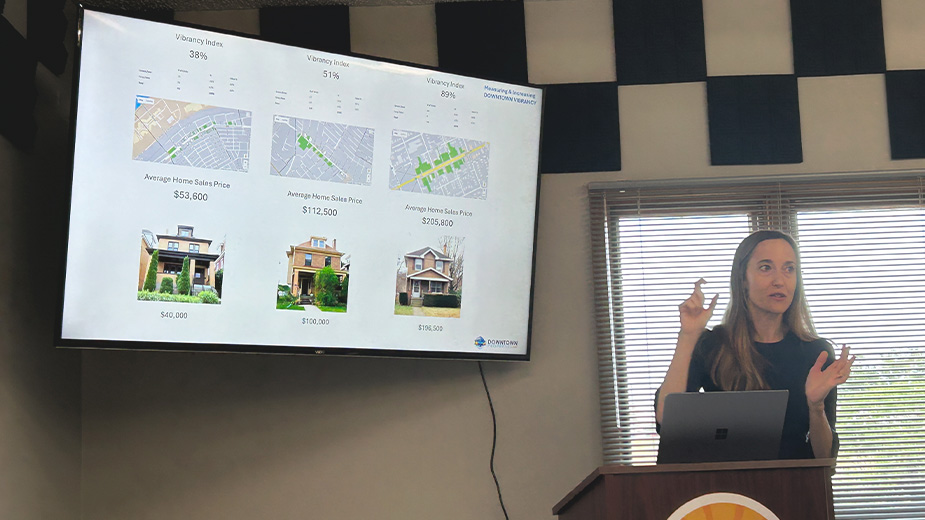3 Area Companies Cited as AG Calls for More Controls on Development Incentives
COLUMBUS – Three companies in the Mahoning Valley are among 52 the state says failed to comply with the terms of loan, grant or tax credit agreements they received from the Ohio Development Services Agency in 2018, according to a report released Monday by Attorney General David Yost.
The local companies — McRoyal Industries, Youngstown, Vivo Bros. Ltd., Columbiana, and Legacy Measurement of Brookfield — fell short of reaching their committed job creation targets in return for tax credits and low-interest loans.
Texas-based Legacy Measurement, which opened a 73,000-square-foot plant in Brookfield in 2014, closed its doors five years later, citing poor profit margins at the Trumbull County location.
The company received job creation tax credits from the Department of Development Services worth $287,315 and is on the hook to repay 100% of the credits issued. According to the report, Legacy Measurement promised to create 150 jobs but added just 85.
McRoyal Industries, a cabinet manufacturer in Youngstown, was cited as non-compliant for its failure to create any of the eight jobs it promised in order to secure $79,855 through the state’s Regional 166 Direct Loan Program. The Ohio Development Services Agency increased the interest rate on the loan by 3% on Dec. 1, 2019.
Yost’s office also said that Columbiana’s Vivo Brothers LTD, which specializes in architectural millwork and custom cabinetry, failed to create the eight jobs it promised when it received $333,000 through the 166 loan fund. Development Services increased its interest rate by 1% on Dec. 1, 2019. The loan payments are current.
The OSDA has recommended the penalties on McRoyal Industries and Vivo Brothers be waived at the discretion of the director if the debt service remains current.
Yost said in the report that his office recommends that the General Assembly and Gov. Mike DeWine’s administration review the efficacy of the state’s economic development loan programs and determine whether there are sufficient controls in place to ensure the public dollars are being spent wisely.
The report, which is required to be submitted to the General Assembly, analyzes whether companies and organizations that were awarded certain economic development incentives complied with the requirements of those awards.
“This is not about fixing blame, but fixing a system,” Yost said in a statement. “Compliance should be based on agreed upon terms and not adjusted midway through to look better. Ohioans deserve transparency, not fuzzy math.”
In a letter sent to the General Assembly, Yost noted that the “historical performance of the DSA should not implicate the practices of our new chief executive, Gov. Mike DeWine.” He also recommended that the General Assembly consider legislative changes that would transfer the responsibility of compiling the report to the state auditor.
Among the major findings of the report are:
- Just 50% of economic development loan awards closed out in 2018 had substantially complied with the terms of the loans. The noncompliant awardees received a total of $13.9 million in loans.
- The worst performing loan portfolio group was the Innovation Ohio Loan Fund Program with a 25% compliance rate.
- None of the 34 Roadwork Development grants evaluated in 2018 included firm job creation requirements, and grant terms from prior years were modified by DSA under former Gov. John Kasich to reduce or eliminate those requirements to allow grantees to be compliant. By comparison, in 2015, more than 63% of Roadwork Development grants contained job-creation requirements.
- DSA only considers project completion, job creation, job retention and payroll commitments in determining compliance. Other secondary goals in contracts were not required, and their progress was not monitored by DSA during the Kasich Administration.
- Of the 81 tax credit award recipients closed out in 2018, 27, or one-third, were substantially non-compliant, with the value of awards totaling $4.8 million to date. DSA adjusted the terms of the awards to reflect underperformance, lowering the tax credit amount.
- For all types of awards, DSA accepts 90% compliance with terms of the agreement as compliant.
- DSA did not provide the office a hybrid list of JobsOhio Economic Award recipients.
Yost made the following recommendations in his letter:
- DSA should be required by statute to provide a hybrid list of JobsOhio Economic award recipients to the entity conducting this review in future years.
- Modification of agreement terms after entering into award agreements seems like adjusting terms to means. If lower targets were sufficient to justify the deal, it would seem that those targets would be adopted originally. If changes to the terms are to be made post facto, those changes ought to be reviewed by an independent authority prior to making the modification.
- DSA should require job creation and retention expectations for all roadwork development grants.
Copyright 2024 The Business Journal, Youngstown, Ohio.



